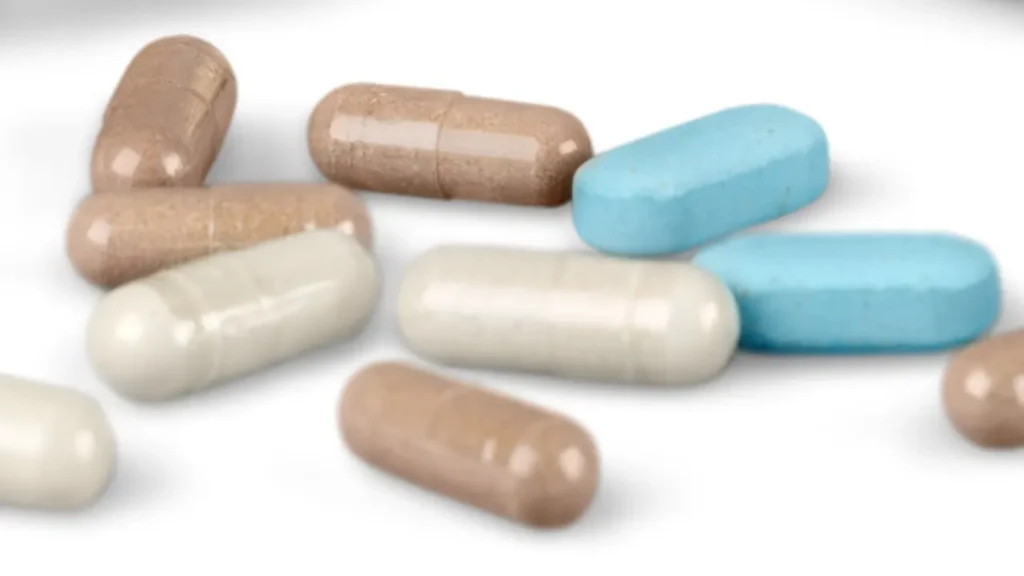The flowering plant species known as American Elder, or Sambucus nigra L. ssp. canadensis is a member of the Adoxaceae family and is indigenous to North America. Due to its numerous bioactive components, the plant has a long history of use in traditional medicine and tremendous potential as a nutritional supplement. This page tries to give a thorough analysis of American Elder’s composition, health advantages, recommended dosage, adverse effects, possible drug interactions, and appropriate use as a nutritional supplement. The article will also detail the chemistry of American Elder and the physiological processes through which it affects the body and brain.
You May Also Like:
CBD for Concentration: The Productivity Hack for Energy and Focus
Androstenedione: Benefits, Dosage, Side Effects, Drug Interactions, and Other Important Information
American Elder: Benefits, Dosage, Side Effects, Drug Interactions, And Other Important Information is an original (NootropicsPlanet) article.
Nature of American Elder
American Elder is a deciduous shrub that grows up to 12 feet tall, with compound leaves, white blooms, and dark purple berries. The plant’s different components, including flowers, berries, leaves, and bark, contain several bioactive chemicals that confer its therapeutic characteristics. The principal ingredients of interest in American Elders are flavonoids, phenolic acids, and anthocyanins, which have been proven to possess antioxidant, anti-inflammatory, and immunomodulatory activities.
Flavonoids, such as quercetin and rutin, are recognized for their antioxidative capability and ability to scavenge free radicals in the body. Phenolic acids, particularly chlorogenic and caffeic acids, contribute to the plant’s antioxidant and anti-inflammatory activities. Anthocyanins, notably cyanidin-3-glucoside, and cyanidin-3-sambubioside, are responsible for the dark coloring of the berries and have been associated with improved cardiovascular health and neuroprotective properties.
Health Benefits of American Elder
American Elder has been traditionally used to treat numerous diseases, and current scientific study supports some of these health claims. The key health benefits linked to the American Elder include:
- Immune Support: American Elderberry extracts have been proven to increase immune function by raising the production of pro-inflammatory cytokines, such as interleukin-1 beta (IL-1β), interleukin-6 (IL-6), and tumor necrosis factor-alpha (TNF-α). These cytokines serve a critical part in the body’s defense against infections.
- Antiviral Capabilities: Several studies have established the antiviral capabilities of American Elders, notably against the influenza virus and respiratory syncytial virus (RSV). The plant’s components, particularly flavonoids and anthocyanins, impede viral reproduction and access to host cells.
- Cardiovascular Health: American Elders’ antioxidant and anti-inflammatory characteristics may help to enhance cardiovascular health by lowering oxidative stress, inflammation, and blood pressure. Anthocyanins, in particular, have been proven to improve endothelial function and reduce the risk of atherosclerosis.
- Neuroprotection: American Elder’s antioxidative capacity can protect the brain from oxidative damage and neurodegenerative illnesses like Alzheimer’s and Parkinson’s. Moreover, anthocyanins have been demonstrated to affect neuronal signaling pathways and boost cognitive performance.

Chemistry of American Elder
A fuller understanding of the chemistry of American Elder helps highlight its potential as a nutritional supplement. The plant’s principal bioactive constituents are flavonoids, phenolic acids, and anthocyanins, which contribute to its therapeutic qualities.
- Flavonoids: These chemicals, such as quercetin and rutin, are known for their antioxidant ability. Flavonoids can bind metal ions and scavenge free radicals, avoiding oxidative stress and cellular damage.
- Phenolic acids: Chlorogenic, caffeic, and other phenolic acids contribute to American Elder’s antioxidant and anti-inflammatory activities. These chemicals can block enzymes involved in inflammation, such as cyclooxygenase (COX) and lipoxygenase (LOX), lowering the generation of pro-inflammatory mediators.
- Anthocyanins: Compounds like cyanidin-3-glucoside and cyanidin-3-sambubioside are responsible for the dark pigmentation of the berries. Anthocyanins have been linked to several health advantages, including enhanced cardiovascular health and neuroprotection, due to their antioxidant and anti-inflammatory effects.
Physiological Mechanisms of Action
The bioactive chemicals in American Elders exert their effects through numerous physiological mechanisms:
- Immune Support: American Elder promotes the production of pro-inflammatory cytokines, such as IL-1β, IL-6, and TNF-α, which play a critical role in the body’s defense against infections. This immunomodulatory action is principally mediated by the activation of nuclear factor kappa B (NF-κB), a transcription factor that affects the expression of genes involved in immunological and inflammatory responses.
- Antiviral Qualities: American Elder’s antiviral activities are ascribed to its flavonoids and anthocyanins, which impede viral reproduction and penetration into host cells. These chemicals interact with viral proteins, inhibiting their binding to cell receptors and subsequent internalization. Additionally, American Elders can activate the immune system to create antiviral cytokines, thus boosting its antiviral efficacy.
- Cardiovascular Health: The antioxidant and anti-inflammatory characteristics of American Elder’s bioactive components, notably anthocyanins, can lower oxidative stress and inflammation in the vascular system, which, in turn, may inhibit the formation of atherosclerotic plaques, improve endothelial function, and lower blood pressure.
- Neuroprotection: American Elder’s antioxidative capacity can protect the brain from oxidative damage and neurodegenerative illnesses like Alzheimer’s and Parkinson’s.


Optimal Dosage of American Elder
The appropriate dosage of American Elder varies on parameters such as age, health status, and the intended use of the supplement. In general, the following dosages are recommended:
- For immune support and antiviral properties: 1-2 teaspoons (5-10 mL) of elderberry syrup, taken 2-4 times daily.
- For cardiovascular health: Daily, 400-500 mg of standardized American Elder extract.
- For neuroprotection: Administer 300-600 mg of standardized American Elder extract daily.
It is vital to note that these dosages are general suggestions, and individual needs may differ. Consulting a healthcare practitioner before commencing American Elder supplementation is advisable to identify the optimal dosage according to personal health requirements.
Side Effects of American Elder
American Elder is usually considered safe when used appropriately; nonetheless, some adverse effects may occur. Common side effects include:
- Gastrointestinal discomfort: Consuming large amounts of American Elder, particularly raw or unripe berries, can cause nausea, vomiting, diarrhea, and abdominal cramps.
- Allergic reactions: Some people may develop allergic reactions to American Elders, such as skin rash, itching, or difficulty breathing. If such symptoms occur, discontinue use and consult a healthcare expert.
- Toxicity: The leaves, bark, and seeds of American Elder contain toxic chemicals, such as lectins and cyanogenic glycosides, that can induce severe gastrointestinal and neurological symptoms if swallowed. It is crucial to use only the blossoms and ripe berries of the plant and avoid eating other portions.
Potential Substance Interactions with American Elder
As with any dietary supplement, the possibility of interactions between American Elders and pharmaceuticals or other supplements exists. Some probable interactions include:
- Diuretics: American Elder has mild diuretic qualities, which may exacerbate the effects of diuretic drugs and could lead to dehydration or electrolyte imbalances.
- Anticoagulants and antiplatelet drugs: American Elders may increase the risk of bleeding when taken alongside anticoagulant or antiplatelet medications, such as warfarin, heparin, or aspirin. Consult a healthcare practitioner before using American Elder in combination with these drugs.
- Immunosuppressive medications: The immunostimulatory properties of American Elders may disrupt the intended effects of immunosuppressive treatments, such as corticosteroids or cyclosporine. Consult a healthcare practitioner before using American Elder alongside these drugs.


Best Responsible Uses of American Elder
To ensure the best effects and limit any hazards, it is crucial to use American Elders responsibly. Consider the following recommendations:
- Source: Choose a reliable source for American Elder products, as the quality and purity of supplements can vary. Opt for standardized extracts, which offer a consistent concentration of bioactive components.
- Preparation: Ensure that the American Elder product is created using only the blooms and ripe berries, as other plant sections may contain poisonous substances.
- Consultation: Consult a healthcare expert before commencing American Elder supplementation, particularly if you are pregnant, breastfeeding, or have pre-existing medical issues. Discuss potential interactions with drugs or other supplements and decide the optimal dosage depending on individual health needs.
American Elder:
Conclusion
American Elder is a plant with a long history of traditional medicinal use, and emerging scientific research supports many of its purported health benefits, including immune support, gastrointestinal health, cardiovascular support, and skin health. While American Elder offers potential health benefits, choosing high-quality products from reputable sources and following recommended dosages is essential.
Additionally, consulting with a healthcare professional before starting any new supplement regimen is advisable, especially for individuals with underlying health conditions or those taking medications. Further research, including clinical trials, will continue to enhance our understanding of the efficacy and safety of American Elders for various health conditions. Overall, American Elders represent a valuable natural option for supporting immune function, reducing inflammation, and promoting overall health and well-being.


References:
- Elderberry: Benefits and Dangers. Retrieved from: https://www.healthline.com/nutrition/elderberry
- The Health Benefits of Elderberry: A Powerful Antioxidant and More. Retrieved from: https://www.medicalnewstoday.com/articles/323288
- Antiviral Activity of Sambucus FormosanaNakai Ethanol Extract and Related Phenolic Acid Constituents against Human Coronavirus NL63. Retrieved from: https://www.mdpi.com/1999-4915/11/11/937
Important Note: The information contained in this article is for general informational purposes only, and should not be construed as health or medical advice, nor is it intended to diagnose, prevent, treat, or cure any disease or health condition. Before embarking on any diet, fitness regimen, or program of nutritional supplementation, it is advisable to consult your healthcare professional in order to determine its safety and probable efficacy in terms of your individual state of health.
Regarding Nutritional Supplements Or Other Non-Prescription Health Products: If any nutritional supplements or other non-prescription health products are mentioned in the foregoing article, any claims or statements made about them have not been evaluated by the U.S. Food and Drug Administration, and such nutritional supplements or other health products are not intended to diagnose, treat, cure, or prevent any disease.
